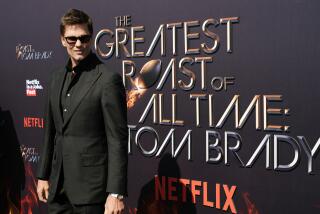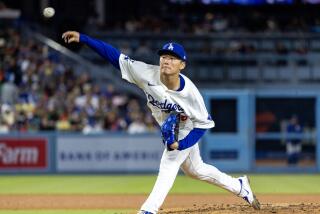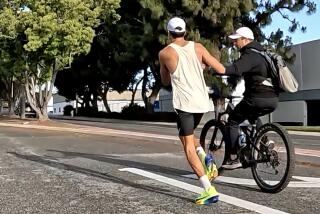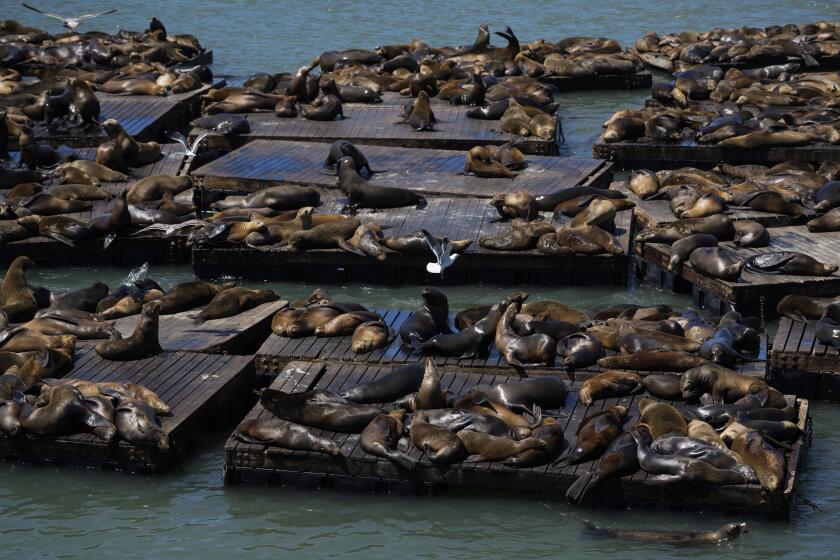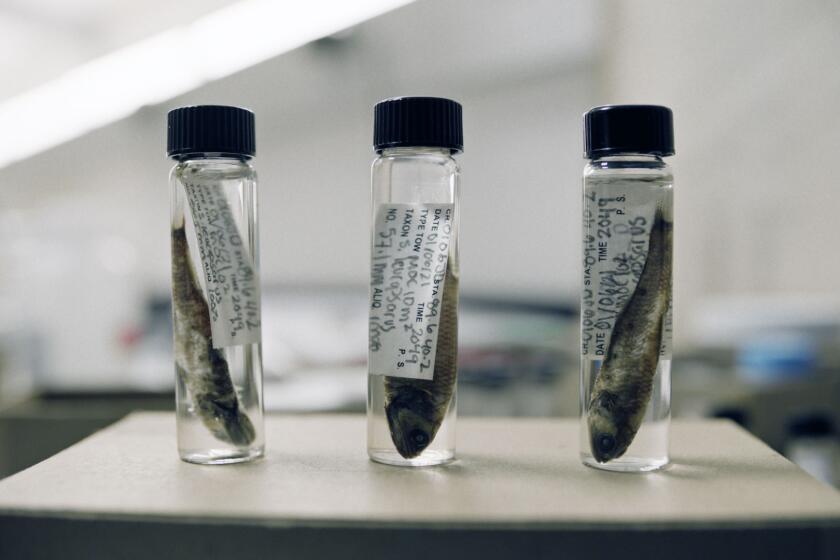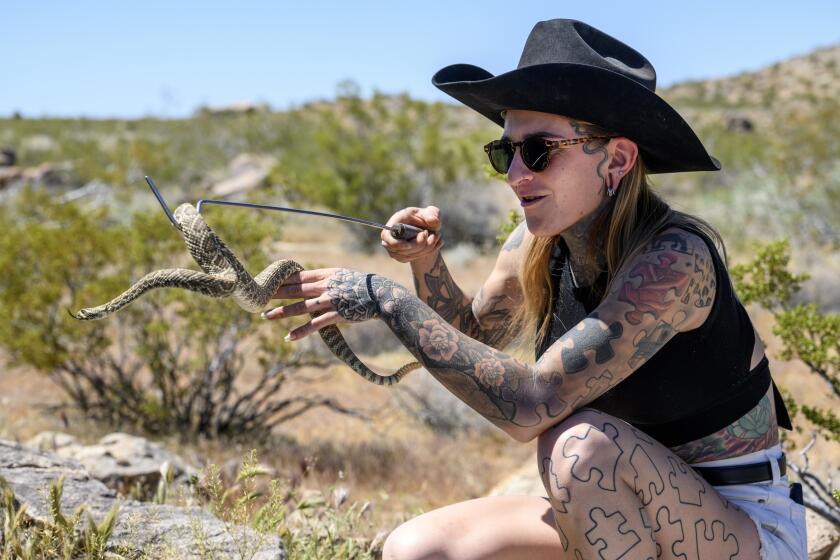Truly A Judge Puts a Claim on a Stake
A $20,000 claim made at Santa Anita three years ago finally paid off for trainer David Bernstein, who saddled Truly A Judge, a 6-1 shot, for a front-running two-length win Saturday in the $100,000 Native Diver Handicap at Hollywood Park.
Truly A Judge, ridden by Martin Pedroza, had never won a stake in 11 tries, which made the 1 1/8 -mile Native Diver his biggest win in a 41-race career. Dynever, the 11-10 favorite who finished second, was last among eight horses after half a mile and couldn’t run down Truly A Judge, who coasted to the quarter pole and was never challenged. Calkins Road, a 31-1 shot, finished third, beaten by nine lengths.
“At the top of the stretch, I was pretty confident,” Bernstein said. “Martin was just sitting on him.”
Bernstein tried to claim Truly A Judge at Del Mar in September 2001, but 11 other trainers put in claims and a shake of numbered pills sent the horse from trainer Jack Carava to Sean McCarthy. A month later, Bernstein won a four-way shake as Truly A Judge won at Santa Anita.
Truly A Judge’s Native Diver resembled the 6-year-old gelding’s win three weeks ago, when he led all the way at 1 1/16 miles. His time Saturday was 1:47.
Pedroza was reunited with Truly A Judge in the prep race. The horse had been ridden by other jockeys in 28 previous starts and hadn’t been ridden by Pedroza since the day Bernstein claimed him.
“I knew when I worked him before the [Native Diver] that he could do it,” Pedroza said. “He had a lot left in the tank in the race before this. If he ran back to that race, I knew I’d be in good shape.”
*
Jockey Victor Espinoza’s effusive post-race comments, after Fusaichi Samurai’s debut in the fourth race, indicate that Fusao Sekiguchi may have made a sound investment when he bought the colt for $4.5 million in February.
“He feels stronger than his father, and he is just so professional,” Espinoza said after Fusaichi Samurai’s front-running two-length win against maidens. “I really believe he could be the best horse ever. He is unbelievable.”
Five years ago Saturday, Espinoza rode Fusaichi Pegasus, the sire of Fusaichi Samurai, to a second-place finish, behind David Copperfield, in his first start. Fusaichi Pegasus, who cost Sekiguchi $4 million, won the 2000 Kentucky Derby, with Kent Desormeaux riding, and stands at stud at Ashford Stud in Versailles, Ky. Fusaichi Pegasus’ syndication fee was estimated at $60 million to $70 million upon his retirement. Neil Drysdale, who trained Fusaichi Pegasus, also trains Fusaichi Samurai.
A 4-5 favorite who paid $3.80, Fusaichi Samurai shrugged off Mysto’s, the eventual second-place finisher, while running fractions of :22 2/5 , :44 3/5 , 1:08 4/5 en route to a 1:15 2/5 clocking for 6 1/2 furlongs.
“His stride, the way he acts, is just unbelievable,” said Espinoza, who hand-rode his horse to the wire. “His father was a little crazy, but this horse is already a professional and he acted like he had run before. When I rode his father, I didn’t want to rush him too much. I could have ridden him to win, but I wanted to teach him. I guess I taught him to be the best, but I never rode him again. This time I decided I was going to teach this horse and make sure he won, giving him the best experience possible.”
Fusaichi Samurai is out of a Storm Cat mare, Hidden Storm, who never raced. Bred by Eagle Holdings, Fusaichi Samurai was sold for $270,000 to trainer Nick Zito, acting on behalf of Robert LaPenta, at a yearling auction last year. He was re-sold this year to Sekiguchi, a Tokyo businessman, for the most ever paid for a 2-year-old at a public sale.
Glowing pre-race reports filtered from the Drysdale barn to Las Vegas, where the 2005 Kentucky Derby future-book price on Fusaichi Samurai dropped at one racebook from an opening 225-1 to 15-1 about 10 days ago.
*
The crowd booed loudly when it was announced, 19 minutes before the fifth race, that the fifth and ninth races were being moved from the grass to the main track. Bets were already in for the pick six, which had a two-day carry-over of $300,358 and started with the fourth race.
Rick Baedeker, president of Hollywood Park, said that jockeys who had ridden in the third race, which was on the grass, had expressed concern for their safety because of soft spots on the course. Baedeker said that track officials needed to talk more with jockeys riding the fourth race before the decision was made. Today’s three grass races will also be run on dirt.
More to Read
Get our high school sports newsletter
Prep Rally is devoted to the SoCal high school sports experience, bringing you scores, stories and a behind-the-scenes look at what makes prep sports so popular.
You may occasionally receive promotional content from the Los Angeles Times.
